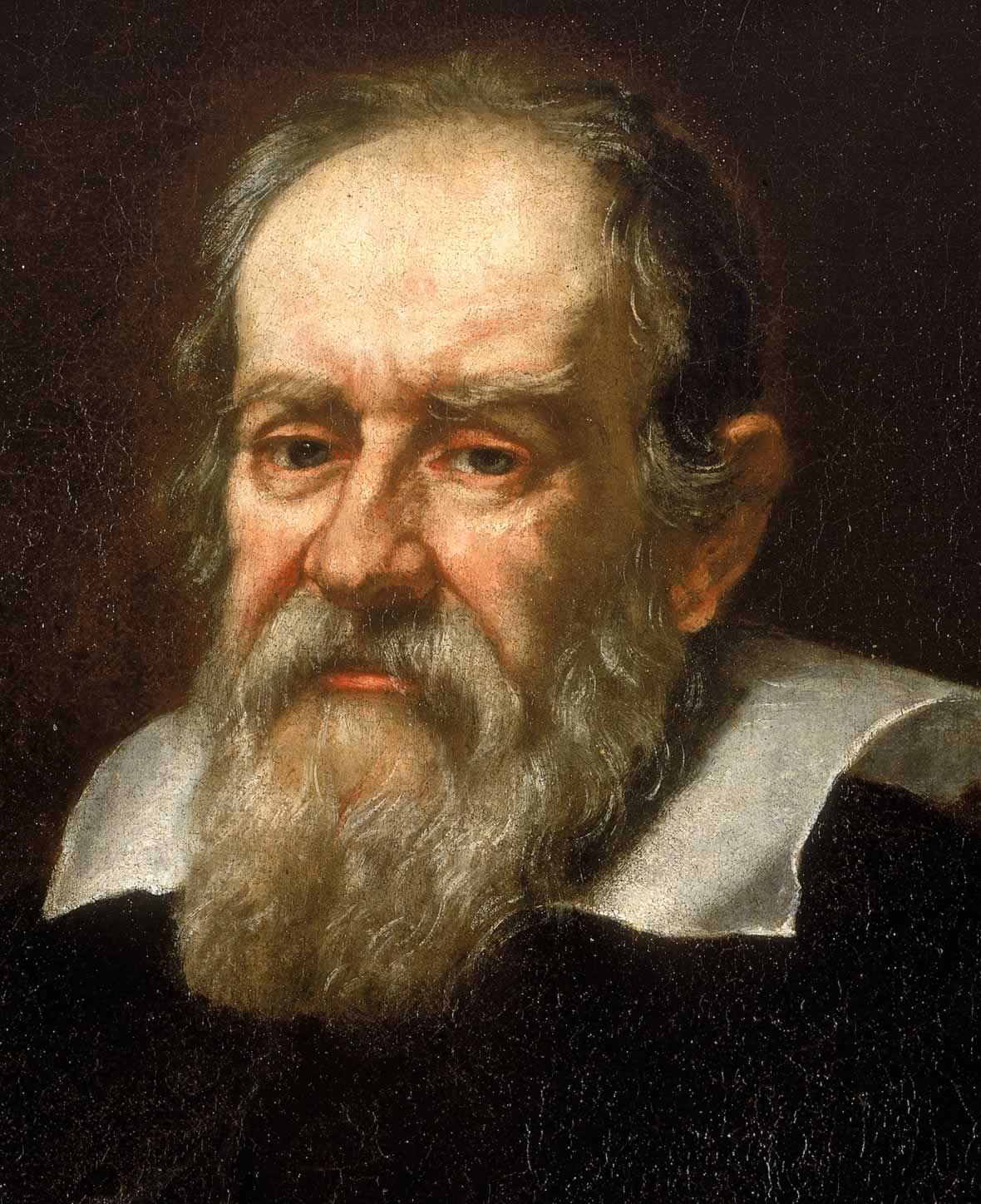Galileo Galilei Berühmte Zitate
Aus dem "Saggiatore" von 1623, zitiert in Ehrhard Behrends: Ist Mathematik die Sprache der Natur? Mitt. Math. Ges. Hamburg 29 (2010), 53–70 http://page.mi.fu-berlin.de/bhrnds/publ_papers/sprachedernatur_hamburg.pdf
Original italienisch: "La filosofia è scritta in questo grandissimo libro che continuamente ci sta aperto innanzi a gli occhi (io dico l'universo), ma non si può intendere se prima non s'impara a intender la lingua, e conoscer i caratteri, ne' quali è scritto. Egli è scritto in lingua matematica, e i caratteri son triangoli, cerchi, ed altre figure geometriche, senza i quali mezi è impossibile a intenderne umanamente parola; senza questi è un aggirarsi vanamente per un oscuro laberinto." - Il Saggiatore Capitolo VI http://it.wikisource.org/wiki/Il_Saggiatore/6#La_filosofia
„Man muß messen, was messbar ist, und messbar machen, was noch nicht meßbar ist.“
Dies gilt zwar als treffende Charakterisierung von Galileis neuartiger Vorgehensweise, aber in seinen Schriften gibt es keinen Beleg. Die früheste Nennung ist von Thomas Henri Martin 1868, mit einem kürzeren Vorläufer von Antoine-Augustin Cournot 1847. Dies wurde von Wilhelm Dilthey und Hermann Weyl aufgegriffen und verbreitet.
Beleg: Andreas Kleinert : Der messende Luchs, Zwei verbreitete Fehler in der Galilei-Literatur, NTM Zeitschrift für Geschichte der Wissenschaften, Technik und Medizin Bd. 17 (2009) 199–206, DOI 10.1007/s00048-009-0335-4 http://link.springer.com/article/10.1007/s00048-009-0335-4#/page-1
Zugeschrieben
Galileo Galilei Zitate und Sprüche
zitiert nach Hans Joachim Störig, Kleine Weltgeschichte der Wissenschaft, Band 1, Seite 267, Fischer Handbuch Nr. 6032, 1970
(Original italienisch: "Da porsi nel titolo del libro di tutte le opere: Di qui si comprenderà in infiniti esempli qual sia l'utilità delle matematiche in concludere circa alle proposizioni naturali, e quanto sia impossibile il poter ben filosofare senza la scorta della geometria, conforme al vero pronunciato di Platone." - Le Opere di Galileo Galilei. Prima editione completa, tomo XIV. Firenze 1855. p. 318 books.google http://books.google.de/books?id=o_fzO87sdqkC&pg=PA318
Brief an Benedetto Castelli, 21. Dezember 1613. In: Galileo Galilei - Ein geschichtlicher Roman von Mathilde Raven. F.A. Brockhaus Leipzig 1860. S. 195 books.google http://books.google.de/books?id=U587AAAAcAAJ&pg=PA195
Original italienisch: "Stante questo, ed essendo di più manifesto che due verità non posson mai contrariarsi, è ofizio de' saggi espositori affaticarsi per trovare i veri sensi de' luoghi sacri, concordanti con quelle conclusioni naturali delle quali prima il senso manifesto o le dimostrazioni necessarie ci avesser resi certi e sicuri." - A Benedetto Castelli in Pisa 21 dicembre 1613. astrofilitrentini.it http://www.astrofilitrentini.it/mat/testi/galileo/11.html
Galileo Galilei: Zitate auf Englisch
Salviati, p. 88
Dialogue Concerning the Two Chief World Systems (1632)
In the 1661 translation by Thomas Salusbury: … such are the pure Mathematical sciences, to wit, Geometry and Arithmetick: in which Divine Wisdom knows infinite more propositions, because it knows them all; but I believe that the knowledge of those few comprehended by humane understanding, equalleth the divine, as to the certainty objectivè, for that it arriveth to comprehend the necessity thereof, than which there can be no greater certainty." p. 92 (from the Archimedes Project http://archimedes.mpiwg-berlin.mpg.de/cgi-bin/toc/toc.cgi?page=92;dir=galil_syste_065_en_1661;step=textonly)
In the original Italian: … tali sono le scienze matematiche pure, cioè la geometria e l’aritmetica, delle quali l’intelletto divino ne sa bene infinite proposizioni di piú, perché le sa tutte, ma di quelle poche intese dall’intelletto umano credo che la cognizione agguagli la divina nella certezza obiettiva, poiché arriva a comprenderne la necessità, sopra la quale non par che possa esser sicurezza maggiore." (from the copy at the Italian Wikisource).
Dialogue Concerning the Two Chief World Systems (1632)
Letter to Élie Diodati (2 January 1638), as translated in The Private Life of Galileo : Compiled primarily from his correspondence and that of his eldest daughter, Sister Maria Celeste (1870) by Mary Allan-Olney, p. 279
Other quotes
Notes in a copy of Jean-Baptiste Morin's "Famous and ancient problems of the earth's motion or rest, yet to be solved" (published 1631), as quoted in The Crime of Galileo (1976) by Giorgio De Santillana, p. 167
Other quotes
"Matteo" in Concerning the New Star (1606)
Other quotes
Sidereus Nuncius (Venice, 1609), Letter to Benedetto Castelli http://www.heritage-history.com/www/heritage.php?Dirbooks&MenuItemdisplay&authorgibson&bookscientists&storyletter (1613)
Quelle: Dialogues and Mathematical Demonstrations Concerning Two New Sciences (1638), P. 148
